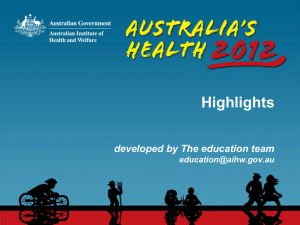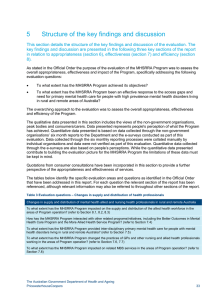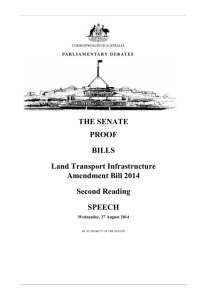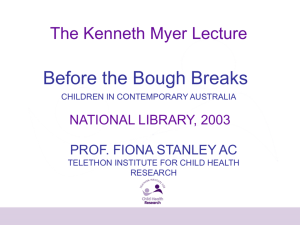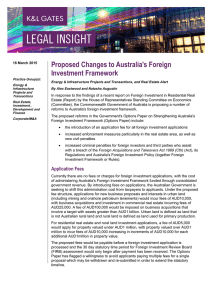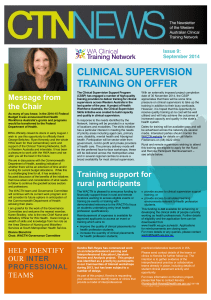DOCX: 182 KB - Department of Industry
advertisement
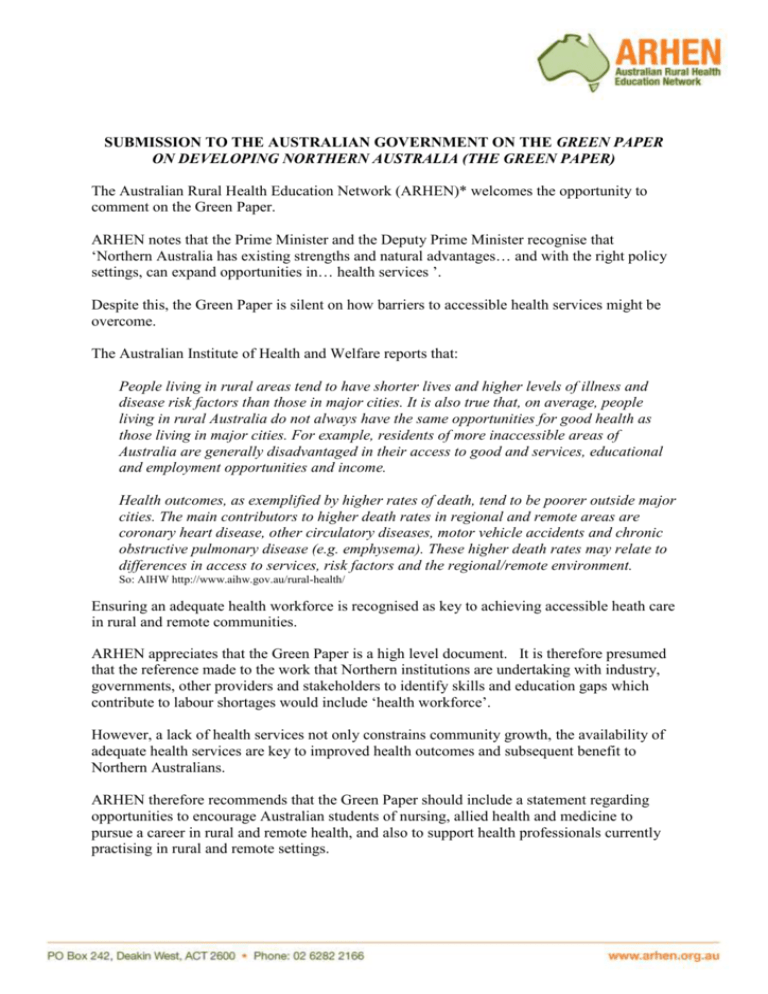
SUBMISSION TO THE AUSTRALIAN GOVERNMENT ON THE GREEN PAPER ON DEVELOPING NORTHERN AUSTRALIA (THE GREEN PAPER) The Australian Rural Health Education Network (ARHEN)* welcomes the opportunity to comment on the Green Paper. ARHEN notes that the Prime Minister and the Deputy Prime Minister recognise that ‘Northern Australia has existing strengths and natural advantages… and with the right policy settings, can expand opportunities in… health services ’. Despite this, the Green Paper is silent on how barriers to accessible health services might be overcome. The Australian Institute of Health and Welfare reports that: People living in rural areas tend to have shorter lives and higher levels of illness and disease risk factors than those in major cities. It is also true that, on average, people living in rural Australia do not always have the same opportunities for good health as those living in major cities. For example, residents of more inaccessible areas of Australia are generally disadvantaged in their access to good and services, educational and employment opportunities and income. Health outcomes, as exemplified by higher rates of death, tend to be poorer outside major cities. The main contributors to higher death rates in regional and remote areas are coronary heart disease, other circulatory diseases, motor vehicle accidents and chronic obstructive pulmonary disease (e.g. emphysema). These higher death rates may relate to differences in access to services, risk factors and the regional/remote environment. So: AIHW http://www.aihw.gov.au/rural-health/ Ensuring an adequate health workforce is recognised as key to achieving accessible heath care in rural and remote communities. ARHEN appreciates that the Green Paper is a high level document. It is therefore presumed that the reference made to the work that Northern institutions are undertaking with industry, governments, other providers and stakeholders to identify skills and education gaps which contribute to labour shortages would include ‘health workforce’. However, a lack of health services not only constrains community growth, the availability of adequate health services are key to improved health outcomes and subsequent benefit to Northern Australians. ARHEN therefore recommends that the Green Paper should include a statement regarding opportunities to encourage Australian students of nursing, allied health and medicine to pursue a career in rural and remote health, and also to support health professionals currently practising in rural and remote settings. ARHEN also notes that there only three UDRHs in Northern Australia and that more funding is needed for the UDRHs in Queensland, Northern Territory and Western Australia to appropriately provide more support to the more northerly areas of these jurisdictions. In addition, the National Health Performance Authority has noted the greatest underservicing in primary health care Medicare Local regions occurs in these northern areas of Australia, which would make further investment in supporting primary health care training delivery in those regions a priority. *Information sheet on ARHEN including details of University Departments of Rural Health (UDRH) attached.



